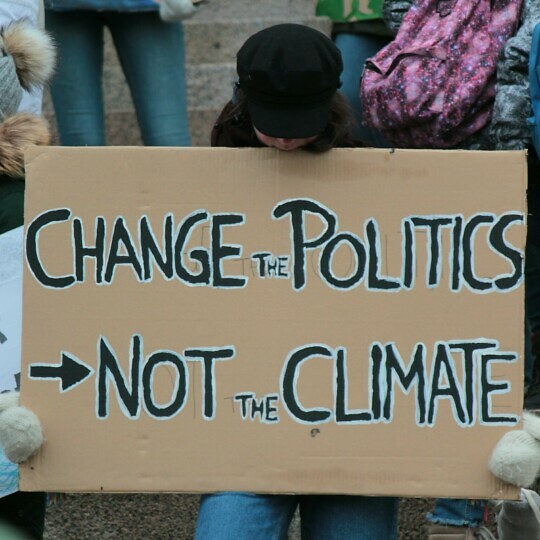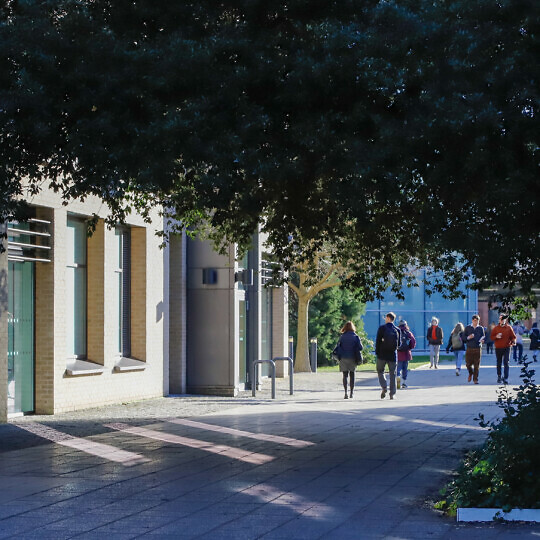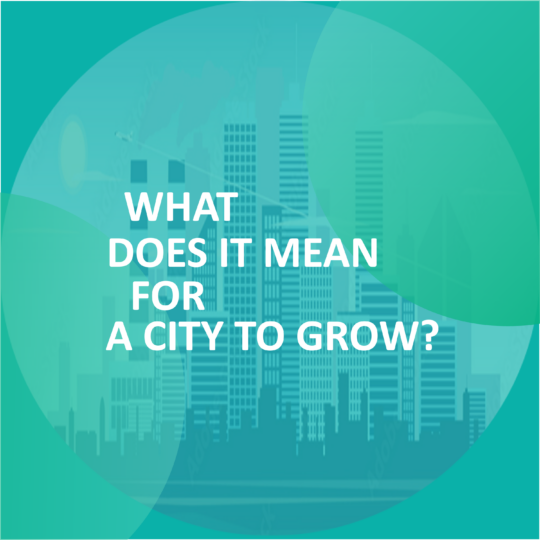| 31 May 2019 - 1 Jun 2019 | All day | SG1 and SG2, Alison Richard Building | |
- Description
- Programme
- Abstracts
Description
Registration for this conference is now closed.
Convenors
Damilola Adebayo (University of Cambridge)
Mattin Biglari (SOAS University of London)
Aditya Ramesh (SOAS University of London)
Noura Wahby (University of Cambridge)
Summary
This two-day international conference will bring together doctoral students and early-career scholars to discuss the different ways energy is and has been intertwined with economic, social, cultural and political developments and processes. The aim of the conference is to centre attention on energy as a key agent in modern and contemporary history, in contrast to its typical designation as an external subject of research exclusive to the Natural Sciences.
At a moment of global climate crisis, it is necessary to critically analyse energy systems and their entanglement in social, economic and political realities. This discussion will develop crucial understanding of the use of alternative and renewable forms of energy.
The conference aims to address the significance of historically uneven development in determining the different ways energy is used and conceptualised around the world. As the negotiations of the 2016 Paris climate accord highlighted, plans for energy transition must also engage with calls for energy justice. Therefore, this conference will focus on cultures of energy in the Global South, drawing attention to particular connections between energy, colonialism and the post-colonial state.
We aim to address an array of different forms of energy – carbon, geo-thermal, nuclear or electrical – and various energy sources such as oil, gas, coal, wood, wind, and water. The nature of world energy not only means that comparative analysis between different national contexts will be important, but also that papers at the conference will follow the transnational and global flows of the infrastructures, knowledge and people that form part of the construction of energy systems and assemblages.
Sub-themes may include:
- The uses and effects of energy in everyday life at the point of consumption, especially its relationship to habits and rhythms of daily life, questions of power, agency, and resistance, as well as categories of identity such as race, gender, class and sect.
- Knowledge, representations and cultural imaginaries of energy, including alternative meanings, ontologies and cosmologies, as well as knowledge controversies.
- The construction and reproduction of energy systems and the role of both human and non-human actors such as workers, engineers, technocrats, infrastructural technologies and raw materials.
- The relationship between energy, politics and governance at local, national and international levels.
- The place of energy in colonial and post-colonial states and its connection to themes of sovereignty, rights, law, development, capitalism, imperialism and the nation-state.
Keynote speaker: Charlotte Lemanski (Department of Geography, University of Cambridge)
Sponsors








Supported by the Centre for Research in the Arts, Social Sciences and Humanities (CRASSH), Murray Edwards College, Past & Present, the Society for the History of Technology, SOAS (University of London), St John's College, and University of Cambridge's Centre of African Studies and Faculty of History.
Administrative assistance: events@crassh.cam.ac.uk
Unfortunately, we are unable to arrange or book accommodation for registrants. The following websites may be of help:
Programme
| Day 1 - Friday 31 May | |
| 9.00 - 9.15 | Registration |
| 9.15 - 9.30 | Introduction |
| 9.30 - 11.00 | Session 1: Energy Transitions Discussant: Shailaja Fennell (University of Cambridge)
Antonella Mazzone (King’s College London) 'What does it mean to be 'Energy Poor' in Amazonia? A Reflection on Energy Practices and Cosmologies of Energy in Four Rural Villages of the Brazilian Amazon'
Nandita Badami (University of California, Irvine) 'The Modular Imagination: Solar and the “Formatting” of the Environment in Rural Karnataka'
Paola Velasco Herrejon (University of Cambridge) 'Wind Energy, Benefit-Sharing and Indigenous Peoples: Lessons from the Isthmus of Tehuantepec, Southern Mexico'. |
| 11.00 - 11.30 | Break |
| 11.30 - 13.00 | Session 2: Knowledge and Expertise Discussant: Katayoun Shafiee (University of Warwick)
Natasha Pesaran (Columbia University) 'The Iraq-Mediterranean Oil Pipelines and the Post-War Petroleum Order: Transit Agreement Negotiations in Lebanon and Syria in the 1950s'
Nurul Hussain (University of Oxford) 'Experiments and the Smart City: Governing Sustainable and Smart Infrastructures in Singapore’s Punggol High Rise Housing Estate'
David Tallon (University of Reading) 'A Tragedy that Nobody Predicted: The Consequences of Oil Developments in Nigeria, 1945 – 1995' |
| 13.00 - 14.00 | Lunch |
| 14.00 - 15.30 | Session 3: Energy in Everyday Life Discussant: Adam Branch (University of Cambridge)
Manase Chiweshe (University of Zimbabwe) 'Magetsi Adzoka (Electricity is Back): Electricity Load Shedding and Everyday Life in a Low Income Urban Setting'
Eniola Boluwaduro (Redeemer’s University) 'Belief System, Indigenous Practices and Fuel Wood Consumption in South-Western Nigeria'
Kamya Choudhary (University of Edinburgh) 'Pump It ft. Rajasthan: Exploring the Impacts and Sustainability of Solar Irrigation' |
| 15.30 - 16.00 | Break |
| 16.00 - 17.30 | Keynote Charlotte Lemanski (University of Cambridge) 'Infrastructural Citizenship: Accessing, Adapting and Avoiding the Networked System in Cape Town, South Africa' |
| Day 2 - Saturday 1 June | |
| 9.30 - 11.00 | Session 4: Agency and Resistance Discussant: Joanna Allan (Northumbria University)
Henry Obi Ajumeze (University of Cape Town) 'Performing Petro-Technology in the Niger Delta'
Sonali Huria (Jamia Millia Islamia University) 'Nuclear Energy versus Synergies of Sisterhood: Anti-Nuclear Protests in India after Fukushima'
Owain Lawson (Columbia University) 'Inequality Materialized: Rural and Urban Effects of Lebanon’s Litani Project' |
| 11.00 - 11.30 | Break |
| 11.30 - 13.00 | Session 5: Colonialism and Postcolonial Development Discussant: Guillemette Crouzet (University of Warwick)
Radouan Mounecif (Sorbonne University) 'Training Petroleum Engineers and Technicians in Colonial and Postcolonial Algeria: The Sociogenesis of a Professional Corporation (1944-1973)'
Daniela Russ (Bielefeld University) 'Towards a Rural Universal in Energy Development Politics: UNEP’s Rural Energy Centres (1975-1985)'
Giulia Scotto (University of Basel) 'ENI and the “Grande Disegno Africano”' |
| 13.00 - 14.00 | Lunch |
| 14.00 - 15.30 | Session 6: Energy Politics Discussant: Paul Warde (University of Cambridge)
Coraline Goron (University of Oxford) 'The Politics of Marketisation and Decarbonisation of China’s Power Sector'
Gustav Cederlof (King’s College London) 'Maintaining Power: Decarbonisation and Recentralisation in Cuba’s Energy Revolution'
Ciruce A. Movahedi-Lankarani (University of Pennsylvania) 'Subduing Civilization's Ogre: Natural Gas, Technology, and the Environment in Iran' |
| 15.30 - 16.00 | Closing Remarks |
Abstracts
Henry Obi Ajumeze (University of Cape Town)
‘Performing Petro-Technology in the Niger Delta’
The landscapes of oil producing communities are everywhere heavily invested in the technologies of what Hanna Musoil describes as ‘the liquid modernity’. If the corporate project of multi-national oil companies is the production of ‘modernity’s infrastructural invasions’, in the spaces in which these facilities are installed for crude extraction and distribution became expressive of false modernities, one infused with metallurgical rust and pollution of the environment. In the Niger Delta of Nigeria where crude oil was discovered in huge commercial quantity in 1956, several networks of pipelines and oil well-heads have become a part of the region’s physical environment. These techno-modern materials are directly implicated in the massive spillage of crude oil into the creeks and rivers of the Niger Delta such that resonates with what David Orr describes as ‘the dialogue between oil and water’. Geographically bound in the substrate of polluted creeks and seascapes of the Niger Delta, oil facilities mostly in various stages of rust and decay find expression in how materials of modernity facilitate slow violence. In other words, they represent the evidence of ecological damages that underwrite the history of insurrection and violence in the Niger Delta. In this vein, it is unsurprising that oil facilities and installations are the target of insurrectional anger, one that is often provoked by ways in which the presence of techno-modernity is framed as an elusive reality. This study uses the oil well-head and pipelines for case study, and focuses on ways in which the techno-science of oil is represented in postcolonial theatre. It draws on cultural texts/plays written about the Niger Delta to analyse and discuss the processes through which the metallurgical matter enters into the service of political insurgency. It further discusses ways in which oil facilities are dramatised and performed, tracking its transformation from its visibility as conduit of energy to the condition of waste and abandonment. In exploring ways in which waste and rust inflect the history of techno-modernity in the Niger Delta, this study proposes to track the contradictory subjectivities of visibility and violence in oil’s ontology in the region.
Nandita Badami (University of California, Irvine)
'The Modular Imagination: Solar and the “Formatting” of the Environment in Rural Karnataka'
In 2014, India’s then newly-appointed Prime Minister Narendra Modi publicly committed to increasing the country’s annual production of solar energy nearly a hundred-fold by 2022. At one hundred gigawatts, the target was one of the single largest national commitments to solar energy at the time. Since then, the ‘solar space’ in India has exploded. In early 2018, India overtook the US to become the second largest solar market in the world, making it an important site to think through the politics of solar as a modern energy system.
This paper takes a closer look at the epistemological category of ‘the environmental’ produced in the course of implementing ultra-mega solar power projects across India. It does so by working through ‘modularity’ as an element of solar’s technical and political form. Solar panels (known also as ‘solar modules’) are prefabricated, extendable, self-contained, closed energy generating systems that are designed to be ‘plugged’ into a variety of environmental contexts. The paper reads archives of modular form in architectural theory and systems ecology against the new ‘Plug and Play’ solar zones policy in the southern Indian state of Karnataka to show how, in the course of implementing solar’s modular technology, ‘the environment’ is itself abstracted and rendered into a series of ‘modular’ spaces in the Indian policy imaginary. India’s ‘solar energy zones’, modeled after special economic zones, operate as self-contained units within the larger nation space, complete with their own (comparatively lax) economic and environmental regulations. The paper discusses how these zones (and their accompanying legal frameworks) render ‘the environment’ into a series of contained spaces imagined by policymakers to, module-like, ‘plug’ into global finance capital as well global narratives of environmentalism.
Eniola Boluwaduro (Redeemer’s University)
‘Belief System, Indigenous Practices and Fuel Wood Consumption in South-Western Nigeria’
Existing discourse on energy resources, production and consumption in the Global South have focused on the relationship(s) between energy infrastructures, economic development, social cohesion, environmental sustainability and energy transitions. However little research has been conducted on the ways in which the multiple layers of consumers’ epistemic status on environmental sustainability and indigenous beliefs influence alternative ways of sourcing for, and consuming, energy. In view of this research dearth, this study will examine the contributions of rural and urban South-Western Nigerian dwellers towards fostering a sustainable energy future in Nigeria. Specifically, the study will critically examine the cultural and aesthetic connections that impact on fuel wood consumption as a socio-cultural and socio-economic practice. Thus, it will gain access into the immediate and wider post-colonial knowledge on fuel wood usage in Nigeria. This study draws from interviews, and a total of one hundred and fifty (150) interviews will be conducted with users of fuel wood in Nigeria’s South-Western geopolitical region. An ethnopragmatic analysis of the indigenous beliefs of fuel wood consumers will be discussed in line with its implications for consumer preferences and conceptualisations about alternative energy uses. Statistics of everyday life and history of South-Western Nigeria dwellers in connection with the use of fuel wood for trade, subsistence and traditional energy use will be explored. Thus, the study critically examines the conceptualisations of fuel wood usage from multidisciplinary analytical standpoints of historical, cultural, discursive and socio-economic realities that will stimulate a robust engagement, facilitate better understanding and largely impact on the provision and consumption of energy infrastructures in South-Western Nigeria.
Gustav Cederlof (King’s College London)
‘Maintaining Power: Decarbonisation and Recentralisation in Cuba’s Energy Revolution’
Most Cubans long cooked with stuff that would burn: kerosene, LPG, diesel, charcoal, or even sawdust. But if you dine in Cuba today, chances are high that the food has been cooked with an electrical appliance. The electrification of Cuba’s kitchens was integral to the ‘Energy Revolution’; a nationwide campaign launched by Fidel Castro in 2005. Astonishingly, the International Energy Agency reports that the energy and carbon intensity of the Cuban economy decreased by over a third at the same time. Drawing on long-term ethnographic and archival research, this paper will examine how the Cuban government reconfigured the national energy infrastructures during the Energy Revolution for the twin purposes of decarbonisation and intensified household electricity use. More than an issue of a low-carbon energy transition, however, I will argue that the Energy Revolution was an attempt to maintain social power relations through everyday energy use. By examining three core interventions – a radical reconfiguration of the national grid, the electrification of cooking, and the withdrawal of liquid fuels from state infrastructures – I demonstrate how the Energy Revolution restored the socialist state’s ability to de-commodify energy and redistribute it centrally; an ability that had been undermined in the time following the collapse of the Soviet Union. Thus, the Energy Revolution was an effort to re-establish the hegemony of the socialist state through energy use. If energy infrastructures are understood as integral to the ‘metabolism’ of social life, infrastructural maintenance ought to be understood as an act that reinforces a socio-ecological order and, hence, a set of political-economic relations.
Manase Chiweshe (University of Zimbabwe)
‘”Magetsi Adzoka” (Electricity is Back): Electricity Load Shedding and Everyday Life in a Low-Income Urban Setting’
It is around 8.00pm on a warm night in Seke, Chitungwiza located about 30 kilometres from the central business district of Harare. This dormitory town housing thousands of households is enveloped in darkness with a few flickers of open fires in some households. The frequent power cuts, a legacy of post-2000 economic meltdown of Zimbabwe, have become a part of everyday life in urban Zimbabwe. Suddenly the street tower lights beam out light that pierces the dark night and as rehearsed there is a huge uproar of voices across town with people both young and old shouting ‘magetsi adzoka’. This paper is based on ethnographic vignettes that contextualise the interaction of electricity with everyday life in low income households. It shows how electricity is intricately linked to livelihoods, identities, creativity, safety and feelings of belonging. The major findings of the study show that availability of electricity is important to the definition of the urban (bright lights of the city) as juxtaposed to the rural. Many participants in this study highlighted how the power cuts were leading to a ruralisation of urban settings as people were forced to look for firewood and other energy sources frequently used in rural areas. The importance of electricity to the everyday thus explains the euphoria that greets its return in Chitungwiza. For some electricity remains the cheapest and most readily available energy source for preparing food, for others it is directly linked to their economic activities and yet for others it is the essence of living in an urban setting where you can use appliances such as refrigerators to maintain their food items. It is within these mundane everyday explanations that a sociological analysis of the importance of electricity emerges.
Kamya Choudhary (University of Edinburgh)
'Pump It ft. Rajasthan: Exploring the Impacts and Sustainability of Solar Irrigation'
My research paper will seek to understand the impact of solar-powered irrigation pumps on the lives of Indian farmers and their local environment with reference to socio-material politics of caste, class and gender along with the evolving policy debates surrounding sustainability. This includes exploring state and farmer narratives of progress and modernisation within agriculture, and how networks of power and policy structures built around the technology are capable of shaping water access, consumption and conservation efforts. To capture this data, I have used qualitative and ethnographic research methods to investigate the performance of solar pumps in Rajasthan, a state in north-western India that is rich in solar irradiance but short on water. The methods were a combination of three, drawn primarily from the disciplines of anthropology and sociology: interviews, immersive participant observation and visual documentation. Theoretically, I will draw from the traditions of agriculture, sociology, politics, anthropology, gender studies as well as science and technology studies. This amalgamation of varied theoretical sources will help develop a richer and more informed chronicle of the experience of acquiring and using solar pumps from the perspective of both farmers and policy makers.
Coraline Goron (University of Oxford)
‘The Politics of Marketisation and Decarbonisation of China’s Power Sector‘
This paper investigates the role that Chinese political institutions have played in the decarbonisation of its power sector. Since 1978, China’s power sector has transformed away from the planned economy, through a series of entrenched struggles between control and regulation, which stimulated a rapid but incredibly wasteful and polluting expansion. The imperative of the energy transition, which was endorsed by the Chinese leadership in the mid-2000s, added a new environmental rationale for the transformation of the electricity sector, besides its ongoing marketisation. Adopting a historical perspective on institutional change, this paper explores how marketisation and decarbonisation politics have intertwined in China’s power sector reform.
Based on an extensive review of policy documents and specialised Chinese power industry magazines, it argues that a widespread belief that China’s modernisation hinged upon ‘breaking the Malthusian boundaries’ (Pomeranz, 2000) of energy shortages supported a rapid expansion, which accelerated with the introduction of market competition, and the failure to re-introduce regulation. It argues that this expansionary norm remains deeply imbedded, as shown in industry scenarios preparing for a threefold increase in China’s electricity demand by 2050. Under this scenario, the struggles between regulation and control have continuously challenged the integration of renewable energy capacity and energy efficiency in the coal-dominated power system, and explains how, contrary to common perceptions of centralisations, expansionary politics have played out in the discrepancy of administrative authorities and various levels of government overseeing different segments of the power sector, including price setting, capacity project approval, and the oversight of both state-owned enterprises and nascent electricity markets introduced by the new power sector reform initiated in 2015.
Sonali Huria (Jamia Millia Islamia University)
'Nuclear Energy versus Synergies of Sisterhood: Anti-Nuclear Protests in India after Fukushima'
The ‘nuclear’ option within India’s energy landscape unravels contentions that go far beyond the demand-supply or cost-benefit analyses. The Indian state’s post-colonial nuclear ambitions and a secretive bureaucracy built around it, have an uneasy relationship with the world’s largest democracy. At the crossroads, are women of villages that surround the country’s existing and proposed nuclear energy project sites, challenging the mainstream discursive frameworks of growth, development and nationalism. The twin impacts of nuclear power development, displacement and radiological risks, impact women in specific ways – displacement disrupts their livelihoods, lifestyle, as well as the cultural universe they inhabit – each of which is intimately tied to their immediate ecologies. Radiation-borne diseases pose not only specific dangers for these women, but the invisible and ever-present risk also unleashes social discrimination and psychological challenges. Unsurprisingly, women have been at the forefront of grassroots anti-nuclear struggles, challenging the dominant discourses on scientific expertise, growth and democratic agency. While the Indian state has responded with brutal violence to the grassroots anti-nuclear people’s movements, levelling an unprecedented number of ‘sedition’ charges against women and their male family members, their concerns remain absent in mainstream feminist agendas. While these inter-relations have been documented and analysed internationally, in India there is little work on the subject. Looking at case studies of post-Fukushima people’s agitations against nuclear power in Jaitapur, Koodankulam and Gorakhpur, this paper will analyse the inter-relations of gender, energy and democracy.
Nurul Hussain (University of Oxford)
'Experiments and the Smart City: Governing Sustainable and Smart Infrastructures in Singapore’s Punggol High Rise Housing Estate'
My project aims to investigate the role of sustainability within the 'smart city' of Singapore through exploring the kinds of environmental governance that emerge at the intersection of the specific urbanism that is formed through the nation's concurrent implementation of 'smart' and sustainable policies. Conceiving of these policies as producing projects that are dense, complex assemblages able to mobilize particular forms of statecraft, this project explores two main questions: (1) How are smart and sustainable infrastructures reproduced in the everyday lives of residents, and is 'smart urbanism' thus reproducible (and therefore sustainable) at all layers of society? and (2) What are the implications of this intersection between 'smart' and sustainable on the policies of post-colonial nation-building, and how might it illuminate theories of development?
Through a focus on infrastructures, and particularly the assemblages formed through human and non-human actors within and between them, the role of materiality is everyday life is the site of investigation. This project looks at the empirical case of the deployment of solar energy across specific Housing Development Board estates (HDBs) in the eco-town of Punggol, as well as the diffused agency of various material objects that symbolise and function at the intersection of 'smart' and sustainable within the neighbourhood. Materiality is seen as a process of complex negotiation that necessarily transcends the nature-culture dualism, allowing the project to explore aspects of infrastructures, and their overlap, including the interactions between things, humans, discourse, policy and narratives of nation-building.
Owain Lawson (Columbia University)
‘Inequality Materialised: Rural and Urban Effects of Lebanon’s Litani Project’
This paper examines Lebanon’s Litani river project to explore how debt and energy infrastructure can create new and politically consequential spatial connections. In 1955, Lebanon’s Office National du Litani (ONL) received an outsized World Bank loan to fund the Litani hydroelectricity project. The project’s dams, plants, and tunnels created new connections between the disenfranchised rural peripheries and the capital. When construction completed in 1965, the infrastructure produced electricity for Beirut’s consumers by extracting water from rural, predominantly Shi‘a areas. While the ONL and Bank celebrated their success, a political-religious movement coalesced around claims of popular sovereignty over rural resources and successfully petitioned parliament to equitably redistribute the Litani waters. Equitable redistribution became a rallying cry for the reformist ‘ulama’ Muhammad Husayn Fadlallah and Musa al-Sadr, who indelibly transformed Shi‘a-state relations.
I argue that while the ONL and World Bank could formerly ignore rural dissent, this movement succeeded in 1965 due to two of the project’s key effects. First, the Litani could no longer serve the purposes for which it had been designed. This was not because the infrastructure functioned poorly, but because the future that the World Bank calculated in 1955 never came into being. The Bank had designed the project according to market projections for 1965. They then used their loan’s disciplinary power to intervene repeatedly to realise those projections. But these interventions failed, and when the Litani plants came online in 1965, the market the World Bank had struggled to create simply did not exist. Second, while the Lebanese state was formerly conspicuously absent from the rural peripheries, the Litani project made the state conspicuously present. The infrastructure materialised inequalities between the capital and hinterland, providing a visible injustice against which rural communities mobilized into larger formations that challenged the state.
Antonella Mazzone (King’s College London)
'What does it mean to be 'Energy Poor' in Amazonia? A Reflection on Energy Practices and Cosmologies of Energy in Four Rural Villages of the Brazilian Amazon'
What does it mean to be ‘energy poor’ in remote areas of the Brazilian Amazon and how does this link with the launch of renewable small-scale projects in the region? Sustainable Development Goal N7, while aiming at universalising access to energy by 2030 via small-scale renewable systems, assumes that the impacts of energy access projects are the same across different ethnic groups and different geographies. Without the study of socio-cultural and geographical differences among the ‘energy poor’, global efforts to reduce energy inequality may be ineffective.
This paper aims at understanding alternative geographies and meanings of energy poverty in four isolated communities with different socio-cultural characteristics and how these can inform global debates on energy poverty and access in the ‘South’. Primary qualitative and quantitative data was collected during doctoral fieldwork and elaborated through a mixed method design.
The study suggests that energy poverty and energy access have different meanings across ethnic groups and therefore their energy needs differ according to gender, socio-cultural characteristics and ideologies. Unpacking these differences not only enriches our knowledge on how energy is seen in the Amazon, but also may help energy planners to accommodate local energy needs.
Radouan Mounecif (Sorbonne University)
‘Training Petroleum Engineers and Technicians in Colonial and Postcolonial Algeria: the Sociogenesis of a Professional Corporation (1944-1973)'
At the end of World War II, French government financed oil exploration activities in the Sahara and other colonial territories, encouraging the development of a national hydrocarbon production. The systematic prospection of remote and vast territories was imposed to acquire specific knowledge in drilling and oil exploration technologies and to train a high number of engineers and technicians. Since its creation in 1924, the Compagnie Française des Pétroles (CFP) has not actively participated in field work activities, as exploration operations in the Middle East were carried out by Anglo-Americans partners. The company counted a limited number of experienced petroleum engineers that worked in Romanian and Moroccan oilfields and had to take charge of training the new generation of French oil workers. In this context, the French government supported the creation of the Institut Français du Pétrole so as to supply the growing demand for skilled workers. Recruitment difficulties that characterise the Algerian war period were imposed also to promote the integration of indigenous workers in the new industry. Based on Total historical archives and the oral archives of former oil companies’ personnel, this paper discuss how the training of highly-qualified workers has been a fundamental condition for the rapid development of Saharan hydrocarbon production. The emergence of the ‘petroleum engineer’ and the ‘oil worker’ as an agent of modernity and progress has shaped the French petro-imaginary in the post-war reconstruction period. Furthermore, it has reduced French technological dependence from international oil companies fostering the French oil industry take-off. After Algeria independence in 1962, negotiation with the new Algerian government imposed French companies to implement the ‘Algerianisation’ of workforce, reversing the proportion of Europeans and Algerian personnel in oil industry. In this context, French petroleum engineers and technicians have directly contributed to the formation and training of new Algerian oil industry cadres.
Ciruce A. Movahedi-Lankarani (University of Pennsylvania)
'Subduing Civilization's Ogre: Natural Gas, Technology, and the Environment in Iran'
In the two decades prior to the 1979 revolution, natural gas became the fuel of Iran’s future. During that time, gas ceased to be burned as waste in the country’s southern oil fields as the Iranian state claimed the right and the ability to exploit the vast resource from the international oil firms that had resisted its exploitation as unprofitable. Intertwining it with the broader narratives of development and national sovereignty used to legitimise the Iranian monarchy, state officials framed gas use as simultaneously making and asserting Iranian advancement. Gas and its infrastructure became monumental testaments to the independence and progress of Iranian society. At a moment when the world’s highly-industrialised societies were turning their attention to gas as a source of energy, Iran’s foray into the field offered ambitious officials an opportunity to not only pursue their own national modernity, but to take the lead in forging it globally.
In this paper, I argue that Iranian officials pursued gas energy as both a symbol of the sovereign modernity they longed to build for their country and as a technological fix for the problems that pursuit had spawned. Gas energy promised not only to fuel modernity, but also to mitigate some of its worst effects. As early as the mid-1960s, the deteriorating air quality of Iran’s cities had begun to reach crisis proportions, a phenomenon Iranians linked to the rapid industrialisation of their country. Ambitious programs were quickly set in motion across Iran that were aimed at converting factories and motor vehicles from dirtier fuels to gas. Government and industry publications celebrated the work of Iranian officials on the forefront of gas utilisation, showing that modernising technocrats in the Global South were not mere consumers of a ‘modernity’ developed elsewhere, but self-conscious participants in the ongoing creation of it.
Natasha Pesaran (Columbia University)
‘The Iraq-Mediterranean Oil Pipelines and the Post-War Petroleum Order: Transit Agreement Negotiations in Lebanon and Syria in the 1950s’
This paper considers the role of transnational flows of Iraqi oil across Lebanon and Syria in shaping the post-war petroleum order. In the years following the Second World War the financial terms of the international oil industry came under strain. Scholars have focused on the challenge from oil-producing states which demanded 50-50 profit-sharing of oil revenues by making claims to natural resource sovereignty. This paper shifts our attention to the transportation of oil as a site of contention between companies and states. It examines negotiations that took place in the 1950s between the Iraq Petroleum Company (IPC) and Syria and Lebanon to establish a transit fee for the operation of the Iraq-Mediterranean oil pipelines.
The IPC, an international oil consortium, had been exporting oil by pipeline from northern Iraq across Syria to the port of Tripoli on the Lebanese coast since the 1930s. The IPC’s transit operations rested on rights and privileges granted by French colonial administrations, including exemption from taxation. Drawing on the IPC archives and the local Arabic press, this paper considers the Lebanese and Syrian governments’ attempt to subject the IPC and its transit operations to sovereign control following independence. Company managers, politicians, and government experts grappled with the problem of assessing the pipeline’s ‘value’ and expressing it in a set of calculations to produce a figure that could be presented as a ‘transit fee’. I demonstrate how the company defended its exemption from taxation and put formulae to work in managing Lebanese and Syrian demands and maintaining control over the principles governing the operation of the oil industry. Rather than representing the pipeline’s value, the transit fee acted as a site for the articulation and contestation of visions of postcolonial territorial sovereignty and its relationship to international oil capital.
Daniela Russ (Bielefeld University)
'Towards a Rural Universal in Energy Development Politics: UNEP’s Rural Energy Centres (1975-1985)'
In 1975, the governing council of the United Nations Environmental Programme decided on a new project of energy development, which sought to combine renewable energies, rural development, and the new paradigm of 'basic needs': Rural Energy Centres (REC). As a reaction to the oil crisis and the conservation movement, RECs should tap the locally available energy sources in rural areas of 'developing countries' (solar, wind, and biomass) and transform them into electricity, which would be distributed to the village population for heating and cooking. Breaking with the previous model of electricity development based on (growing) urban and industrial demand, RECs constituted the first 'static' model of energy development, in which 'energy' was not expected to incite production.
In my paper, I relate the REC to earlier energy development schemes and analyse the planning, construction, local experiences and ultimate failure of a REC in Pattiyapola, Sri Lanka. In my analysis, I emphasise the widely contradictive consequences of the installation of a 'global model' of rural energy development: the problem to finance basic needs, the commodification of rural energy, and the interference of 'rurality' and 'globality' of the model. My research is mainly based on the UN archival documents.
Giulia Scotto (University of Basel)
‘ENI and the “Grande Disegno Africano”’
Despite Italy’s colonial past, in the early postcolonial era, the Italian national hydrocarbon agency ENI (Ente Nazionale Idrocarburi) managed to gain a new image of neutrality and to enter the oil market of twenty-five newly founded African countries. Through strategic diplomacy, targeted advertising campaigns, and the construction of material artefacts, ENI developed an incremental network of more or less tangible lines and nodes through which oil was extracted, transported, refined and commercialised. This set of operations was defined by Giuseppe Accorinti, the coordinator of ENI’s activities in North and West Africa from 1962 to 1968, as the ‘grande disegno africano’ or big African scheme, plan or project.
Based on the analysis and comparison of visual and textual archival sources, and the direct observation of selected infrastructural artefacts this paper will investigate ENI’s material and propagandistic interventions and the ways in which they shaped landscapes and affected lived experiences in non-oil producing countries of sub-Saharan Africa. The selected artefacts are: the Tema refinery in Ghana inaugurated in 1963, the Tazama oil pipeline connecting Tanzania and Zambia built in 1968, and various motels and gas stations built along the African road network in the ‘60s and ‘70s.
The spatial and architectural interrogation of ENI’s projects allows for a broader understanding of the unspoken territorial and social vision that the Italian company projected on the African continent and offers a counterbalance to the official narrative of the heroic and decolonising mission proposed by the oil company in Italy and abroad.
David Tallon (University of Reading)
‘A Tragedy that Nobody Predicted: The Consequences of Oil Developments in Nigeria, 1945-1995’
International oil companies have been blamed for many of Nigeria’s ills: for wanton oil spillages, for unnecessary flaring of greenhouse gases, for the destruction of indigenous economies and cultures, and for complicity in human right abuses by their close associations with corrupt repressive regimes. Political activists and many academics have been campaigning against oil for over thirty years, often citing Nigeria as one of the worst examples of abuse of power and of corruption. Nigeria, however, has been producing vast quantities of oil since 1958, just prior to independence in 1960, an achievement that was applauded by both local politicians and by international experts for many years.
This presentation assesses initial evidence from an ongoing analysis of oil company and government archives, along with some previously unused oral histories and scholarly publications from the early years of oil exploitation. The findings support a narrative of arrogance and political corruption by both oil companies and by Nigerian elites. But the evidence also demonstrates that many of the same people maintained sustained levels of social empathy, and the key decision makers often strove for the just distribution of wealth. More than anything else, the results shows how the technological, economic, political, social and cultural impact of oil was misunderstood by most experts at the time, particularly in the context of Nigeria. In addition, it shows that when compensating strategies were attempted, the projected benefits from these initiatives were also misunderstood until it seemed too late to put the genie back into the bottle.
The discussion concludes by presenting some of the popular proposed solutions to this ongoing tragedy that resulted from the legacy of oil in Nigeria, then questions how the lessons from history might help in their implementation.
Paola Velasco Herrejon (University of Cambridge)
'Wind Energy, Benefit-Sharing and Indigenous Peoples: Lessons from the Isthmus of Tehuantepec, Southern Mexico'
This presentation specifically looks at the practice of benefit-sharing in wind energy projects in indigenous peoples’ lands. The creation of wind energy projects in remote and rural communities is commonly regarded as a win-win strategy to ‘ensure access to affordable, reliable, sustainable, and modern energy for all’, while at the same time creating development opportunities for traditionally marginalised segments of society. Indeed, the surge of so-called community energy in recent years has ‘unwittingly’ turned local and rural communities into ‘protagonists of the energy transition’. As with any other transition, however, the quest for the tools to deliver change raises interrogatives on the ways in which change is enacted, and the role of law and policy in this context. Reliance on fossil-fuel based energy generation and the related energy governance arrangements undoubtedly created winners and losers, but changing the status quo entails finding new equilibria, engendering change at the pace and scale needed.
The profound social, economic and environmental impacts of renewable energy projects therefore have raised again familiar questions about governance and decision-making in capitalist societies. Therefore, greater understanding of the distribution of benefits and burdens of energy services has become hugely important in advancing the proliferation of clean energy. The presentation looks at the practice of benefit-sharing – why it is being done, by whom and in which context – to make sense of the normative contours of extant arrangements, pursuant to a case-study approach. Looking at Mexico’s growing wind energy sector, the paper considers benefit-sharing arrangements in indigenous peoples’ lands. The aim is to establish whether, and how well, these arrangements deliver genuine social acceptance and win-win outcomes.












